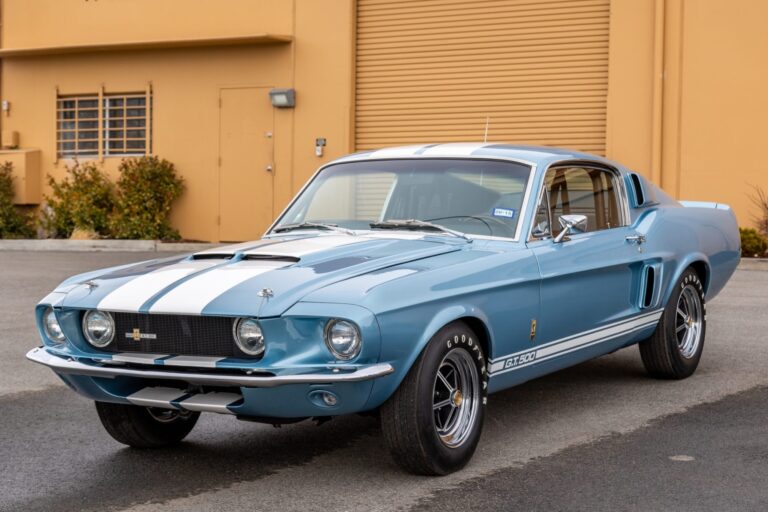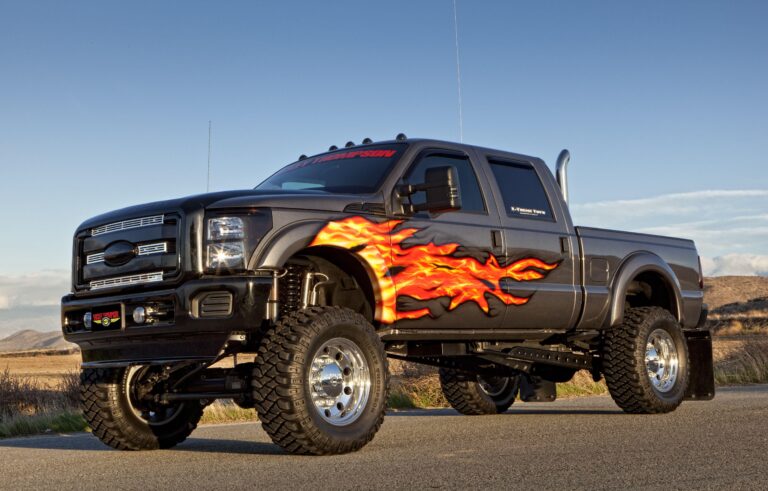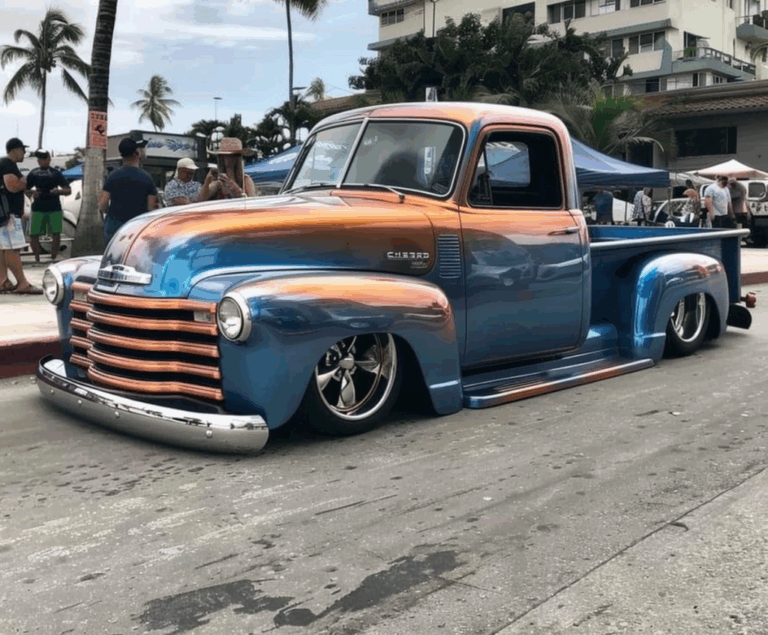All Brand Car Price In Bangladesh: A Comprehensive Guide to Navigating the Automotive Market
All Brand Car Price In Bangladesh: A Comprehensive Guide to Navigating the Automotive Market cars.truckstrend.com
The dream of owning a car is a shared aspiration for many in Bangladesh. However, transforming that dream into a reality requires a thorough understanding of the country’s unique and dynamic automotive market. Unlike many other nations, car prices in Bangladesh are influenced by a complex interplay of import duties, government policies, exchange rates, and consumer demand. This comprehensive guide aims to demystify the "All Brand Car Price In Bangladesh," offering insights into the factors that shape costs, the popular brands available, and practical advice for prospective buyers.
Understanding the Bangladeshi Car Market Landscape
All Brand Car Price In Bangladesh: A Comprehensive Guide to Navigating the Automotive Market
Bangladesh’s automotive sector is predominantly import-driven, with a significant reliance on both brand-new vehicles from official distributors and reconditioned (used) cars, primarily from Japan. This dual market structure creates diverse price points and options for buyers. The rising middle class and increasing disposable income have fueled a steady growth in demand, but the high cost of vehicle ownership remains a significant barrier for many.
The primary reason for the elevated prices compared to global markets is the extensive government taxation. Import duties, supplementary duties, VAT, and registration fees collectively account for a substantial portion of a vehicle’s final price, sometimes doubling or even tripling its ex-factory cost. Understanding these underlying factors is crucial for any potential car buyer in Bangladesh.
Major Car Brands and Their Price Segments
The Bangladeshi car market is home to a wide array of international brands, each catering to different segments and price points.
1. Japanese Brands: The Unquestioned Dominators
Japanese brands hold the lion’s share of the market due to their reputation for reliability, fuel efficiency, excellent resale value, and robust after-sales service networks.
- Toyota: The undisputed leader. Models like the Corolla Axio, Allion, Premio, Vitz, Aqua, and Noah/Voxy (microbuses) are extremely popular in the reconditioned segment, while the Camry, RAV4, and Land Cruiser are sought after in the new premium segment.

- Price Segment: Wide, from BDT 15 Lakhs (reconditioned Vitz/Aqua) to BDT 1.5 Crore+ (new Land Cruiser).
- Honda: Known for performance and refined engineering. Civic, HR-V, CR-V, and City are popular.
- Price Segment: Mid-range to premium, BDT 25 Lakhs (reconditioned City) to BDT 70 Lakhs+ (new CR-V).
- Mitsubishi: Offers robust SUVs and sedans. Lancer, Outlander, and Pajero Sport are common.
- Price Segment: Mid-range to premium, BDT 20 Lakhs (reconditioned Lancer) to BDT 60 Lakhs+ (new Outlander).
- Suzuki: Gaining significant traction with affordable and fuel-efficient models. Alto, Celerio, Swift, Baleno, and Vitara Brezza are popular, often imported officially as Maruti Suzuki.
- Price Segment: Entry-level to mid-range, BDT 12 Lakhs (new Alto) to BDT 30 Lakhs (new Vitara Brezza).
- Nissan: Offers a variety of sedans and SUVs. X-Trail, Sylphy, and Juke are notable.
- Price Segment: Mid-range to premium, BDT 18 Lakhs (reconditioned Sylphy) to BDT 60 Lakhs+ (new X-Trail).
2. Korean Brands: Value and Features
Korean manufacturers have rapidly gained popularity by offering feature-rich vehicles at competitive price points, often with modern designs.
- Hyundai: Models like Elantra, Sonata, Creta, and Tucson are well-received.
- Price Segment: Mid-range to premium, BDT 28 Lakhs (new Elantra) to BDT 65 Lakhs+ (new Tucson).
- Kia: Known for stylish SUVs and crossovers. Sportage, Seltos, and Carnival are becoming increasingly visible.
- Price Segment: Mid-range to premium, BDT 30 Lakhs (new Seltos) to BDT 75 Lakhs+ (new Carnival).
3. European Brands: Luxury and Performance
The premium and luxury segments are dominated by European marques, appealing to buyers seeking performance, prestige, and advanced technology.
- Mercedes-Benz, BMW, Audi: The German trio offers a wide range of sedans (C-Class, E-Class, 3 Series, 5 Series, A4, A6) and SUVs (GLC, X5, Q5).
- Price Segment: High-end luxury, typically starting from BDT 80 Lakhs and going well beyond BDT 2 Crore.
- Volkswagen: While less dominant in the premium segment, models like the Polo and Tiguan offer European build quality.
- Price Segment: Mid-range to premium, BDT 30 Lakhs (new Polo) to BDT 70 Lakhs+ (new Tiguan).
- Volvo: Known for safety and minimalist design. XC40, XC60, and S90 are available.
- Price Segment: Premium luxury, BDT 60 Lakhs to BDT 1 Crore+.
4. Chinese Brands: Affordability and Rapid Growth
Chinese manufacturers are making inroads by offering highly affordable, feature-packed vehicles, often with modern designs. Their market share is steadily increasing.
- MG, Haval, Chery, DFSK: Models like the MG ZS, Haval H6, Chery Tiggo series, and DFSK Glory are gaining traction.
- Price Segment: Entry-level to mid-range, BDT 20 Lakhs (MG ZS) to BDT 40 Lakhs (Haval H6).
5. Indian Brands: Budget-Friendly Utility
Indian brands cater to the entry-level and commercial vehicle segments, focusing on affordability and practicality.
- Tata, Mahindra: Offer passenger vehicles, pickup trucks, and SUVs like the Tata Nexon, Tiago, and Mahindra Scorpio. Maruti Suzuki vehicles (produced in India) are often imported through official Suzuki channels.
- Price Segment: Entry-level, BDT 10 Lakhs (Tata Tiago) to BDT 30 Lakhs (Mahindra Scorpio).
Factors Affecting Car Prices in Bangladesh (Detailed)
Beyond the brand and model, several critical factors directly influence the final price you pay for a car in Bangladesh:
-
Government Policies & Taxation: This is the most significant factor.
- Customs Duty: Varies significantly based on engine capacity (CC) and vehicle type. Higher CC cars attract exponentially higher duties.
- Supplementary Duty (SD): An additional tax also tied to engine capacity and vehicle type.
- Value Added Tax (VAT): Applied on the total value including duties.
- Advance Income Tax (AIT): Another tax levied at the import stage.
- Registration Fees: Paid to the Bangladesh Road Transport Authority (BRTA) for vehicle registration, varying by engine capacity. These fees alone can be substantial.
- Impact: These duties and taxes can inflate a car’s price by 100% to 300% or more compared to its international market price.
-
Exchange Rates: As most cars are imported, fluctuations in the Bangladeshi Taka (BDT) against major currencies like the US Dollar (USD) and Japanese Yen (JPY) directly impact import costs and, consequently, retail prices. A weaker Taka means higher car prices.
-
Fuel Type & Efficiency: Hybrid vehicles often receive some tax benefits, making them relatively more attractive despite a higher initial purchase price. Diesel vehicles can also have different duty structures. Fuel efficiency is a major consideration for buyers, influencing long-term running costs.
-
Vehicle Condition (New vs. Reconditioned):
- Brand New: Imported directly by official distributors, come with manufacturer warranty, full service history, and the latest features. Higher initial cost.
- Reconditioned (Used Imports): Predominantly from Japan, these are used cars that undergo minor refurbishments. They offer significant cost savings over new cars, especially for popular models like Toyota Axio or Allion. However, they come with risks regarding actual mileage, accident history, and lack of manufacturer warranty. Prices depend heavily on model year, grade, and mileage.
-
Trim Levels & Features: Within the same model, different trim levels (e.g., base, mid, top-spec) offer varying features (infotainment, safety tech, premium interiors), leading to considerable price differences.
-
After-Sales Service & Spare Parts Availability: Brands with established service networks and readily available, affordable spare parts often command better resale values and are preferred by buyers looking for lower long-term ownership costs.
-
Market Demand & Supply: High demand for specific models can lead to price premiums, while oversupply or a slump in demand can result in discounts. New model launches can also affect the prices of older models.
How to Navigate the Car Buying Process in Bangladesh
Buying a car in Bangladesh requires careful planning and due diligence.
- Set a Realistic Budget: Beyond the purchase price, factor in registration fees, insurance, annual road tax, and estimated maintenance costs.
- Thorough Research:
- Online Platforms: Websites like Bikroy.com, OLX (now rebranded), and official dealer websites are good starting points.
- Automotive Blogs & Forums: Gather information on specific models, common issues, and ownership experiences.
- Price Comparison: Always compare prices from multiple dealerships and importers for the same model and trim.
- Dealership vs. Importer:
- Official Dealerships: Offer brand new cars, manufacturer warranty, genuine parts, and reliable after-sales service. Higher price.
- Independent Importers: Specialize in reconditioned cars, offering a wider range of models and lower prices. Requires more caution due to varying quality and transparency. Choose reputable importers with good reviews.
- Inspection & Test Drive:
- For reconditioned cars, a pre-purchase inspection by an independent, trusted mechanic is highly recommended to check for accident damage, genuine mileage, and overall condition.
- Always take a test drive to assess the car’s performance, handling, and comfort.
- Financing Options: Most banks offer car loans (auto loans) with varying interest rates and repayment tenures. Leasing options are also available for businesses.
- Documentation & Registration: Be prepared for extensive paperwork. The BRTA registration process involves several steps and fees. Ensure all documents are genuine and transferred correctly.
Challenges and Solutions
- Challenge: Exorbitant Prices due to Duties.
- Solution: Consider reconditioned cars (with careful inspection), smaller engine capacity vehicles (which attract lower duties), or explore locally assembled models if available (though limited options).
- Challenge: Lack of Transparency in the Reconditioned Market.
- Solution: Buy from reputable, established importers, insist on auction sheets, and always get an independent pre-purchase inspection.
- Challenge: Spare Parts and Service Availability/Cost.
- Solution: Stick to popular brands (Toyota, Honda, Suzuki) with extensive service networks and readily available parts. Research parts costs before buying.
- Challenge: Fuel Price Volatility.
- Solution: Prioritize fuel-efficient models, hybrid vehicles, or consider upcoming EV options (though infrastructure is still nascent).
Practical Advice and Actionable Insights
- Negotiate! Whether buying new or reconditioned, there’s often room for negotiation on the price or additional perks (free servicing, accessories).
- Factor in "Hidden Costs": Remember that the sticker price is just the beginning. Registration, insurance, annual road tax, and immediate maintenance will add significant costs.
- Resale Value Matters: In Bangladesh, models from Toyota and Honda generally hold their value exceptionally well, making them safer long-term investments.
- Don’t Rush: Take your time to research, compare, and inspect before making a decision. Impulsive buying can lead to costly mistakes.
Indicative Car Price Table in Bangladesh (Lakhs BDT)
Disclaimer: Prices are highly indicative, subject to change based on market dynamics, specific trim levels, features, model year, reconditioned grade, and exclude registration, insurance, and other charges. Always confirm with official dealers or reputable importers.
| Brand | Popular Model(s) | Type | Indicative Price Range (BDT Lakhs) | Key Features / Segment |
|---|---|---|---|---|
| Toyota | Vitz / Aqua | Reconditioned | 15 – 22 | Entry-level hatchback, fuel-efficient, excellent resale. |
| Corolla Axio / Allion | Reconditioned | 22 – 38 | Popular mid-size sedan, reliable, high demand. | |
| Premio | Reconditioned | 28 – 45 | Premium mid-size sedan, comfortable, status symbol. | |
| RAV4 / Harrier | Reconditioned | 45 – 75 | Compact/mid-size SUV, versatile. | |
| Camry | New | 75 – 95 | Executive sedan, luxury, comfort. | |
| Land Cruiser Prado | New | 120 – 180+ | Premium SUV, off-road capability, robust. | |
| Honda | City | Reconditioned | 25 – 32 | Subcompact sedan, practical. |
| Civic | New | 40 – 55 | Compact sedan, sporty design, performance. | |
| HR-V / Vezel | Reconditioned | 35 – 48 | Subcompact SUV/Crossover, stylish. | |
| CR-V | New | 60 – 80 | Compact SUV, family-friendly, reliable. | |
| Suzuki (Maruti) | Alto / Celerio | New | 12 – 18 | Entry-level hatchback, highly fuel-efficient, affordable. |
| Swift | New | 19 – 25 | Compact hatchback, sporty, value for money. | |
| Vitara Brezza | New | 28 – 35 | Compact SUV, popular for features and size. | |
| Hyundai | Elantra | New | 28 – 35 | Compact sedan, modern features. |
| Creta | New | 38 – 48 | Compact SUV, stylish, feature-packed. | |
| Tucson | New | 50 – 65 | Mid-size SUV, premium feel, comfortable. | |
| Kia | Seltos | New | 30 – 40 | Compact SUV, trendy design, good value. |
| Sportage | New | 45 – 60 | Mid-size SUV, bold design, feature-rich. | |
| Mitsubishi | Lancer | Reconditioned | 20 – 28 | Compact sedan, robust. |
| Outlander | New | 50 – 65 | Mid-size SUV, versatile. | |
| MG | ZS | New | 20 – 30 | Compact SUV, affordable, feature-loaded. |
| HS | New | 35 – 45 | Mid-size SUV, premium interior. | |
| Chery | Tiggo 4 Pro / Tiggo 7 Pro | New | 22 – 38 | Compact SUV, modern tech, competitive pricing. |
| Mercedes-Benz | C-Class / E-Class | New | 80 – 150 | Luxury sedans, performance, prestige. |
| GLC / GLE | New | 120 – 200+ | Luxury SUVs, comfort, technology. | |
| BMW | 3 Series / 5 Series | New | 90 – 160 | Luxury sedans, sporty driving dynamics. |
| X3 / X5 | New | 110 – 200+ | Luxury SUVs, performance, practicality. | |
| Audi | A4 / A6 | New | 85 – 150 | Luxury sedans, sophisticated design. |
| Q3 / Q5 | New | 100 – 180 | Luxury SUVs, refined, comfortable. |
Concluding Summary
The journey to owning a car in Bangladesh is a significant financial undertaking, shaped by a complex interplay of global and local economic factors. While high import duties present a considerable challenge, the market offers a diverse range of options, from budget-friendly Japanese reconditioned cars to luxurious European marques and increasingly competitive Chinese and Korean models.
An informed buyer, armed with thorough research, a clear budget, and a cautious approach, can successfully navigate this market. Understanding the nuances of brand reputation, vehicle condition, and the pervasive impact of taxation is key to making a wise investment. As Bangladesh’s economy continues to grow, the automotive landscape is poised for further evolution, with potential shifts towards more local assembly and the gradual adoption of electric vehicles, offering new avenues for car ownership in the future.
Frequently Asked Questions (FAQ) about Car Prices in Bangladesh
Q1: Why are car prices so high in Bangladesh compared to other countries?
A1: The primary reason is the extremely high import duties and taxes imposed by the Bangladeshi government. These include Customs Duty, Supplementary Duty, VAT, and Advance Income Tax, which can collectively add 100% to 300% or more to the vehicle’s base price.
Q2: What is the difference between "brand new" and "reconditioned" cars?
A2: "Brand new" cars are imported directly from the manufacturer by official distributors, come with a factory warranty, and have zero mileage. "Reconditioned" cars are used vehicles, predominantly imported from Japan, that undergo minor repairs or cleaning before being sold. They are significantly cheaper but lack manufacturer warranties and require careful inspection for hidden issues.
Q3: Are financing options available for buying cars in Bangladesh?
A3: Yes, most commercial banks in Bangladesh offer "Auto Loan" or "Car Loan" facilities. These typically require a down payment (usually 30-50% of the car’s value) and have varying interest rates and repayment periods. Leasing options are also available, particularly for corporate clients.
Q4: Which car brands offer the best resale value in Bangladesh?
A4: Japanese brands, especially Toyota and Honda, consistently offer the best resale value in Bangladesh. Their reputation for reliability, fuel efficiency, and readily available spare parts makes them highly sought after in the used car market.
Q5: What are the hidden costs of buying a car in Bangladesh?
A5: Beyond the purchase price, significant hidden costs include:
- Registration Fees: Paid to BRTA, varies by engine capacity, can be substantial.
- Insurance: Mandatory third-party or comprehensive insurance.
- Annual Road Tax: A yearly fee paid to BRTA.
- Maintenance Costs: Regular servicing, fuel, and potential repairs.
- Transfer Fees: If buying a used car.
Q6: Is it better to buy from an official dealership or an independent importer?
A6: It depends on your budget and priorities.
- Official Dealerships: Best for brand new cars, manufacturer warranty, genuine parts, and reliable after-sales service. Higher initial cost.
- Independent Importers: Ideal for reconditioned cars, offering lower prices and a wider selection of older models. Requires more caution, thorough inspection, and choosing a highly reputable importer due to varying transparency and quality.


